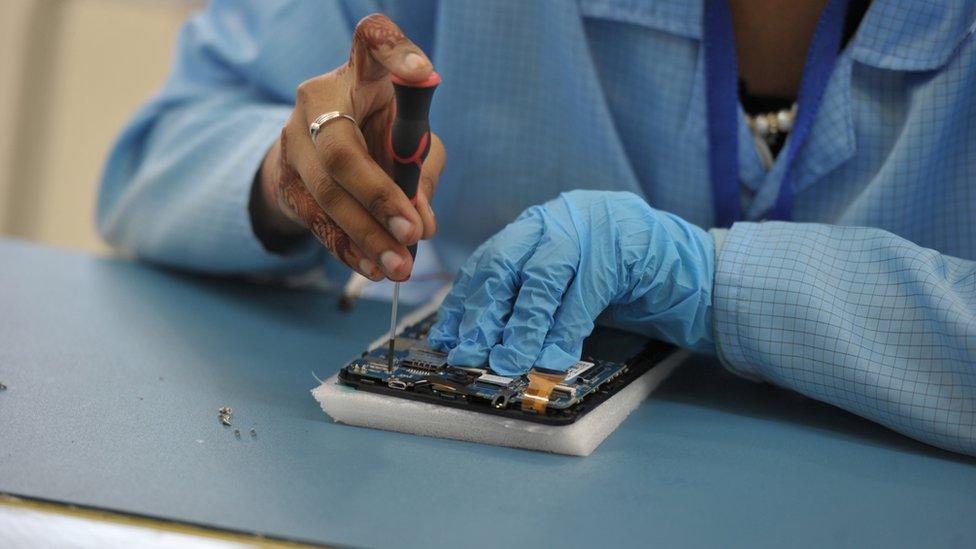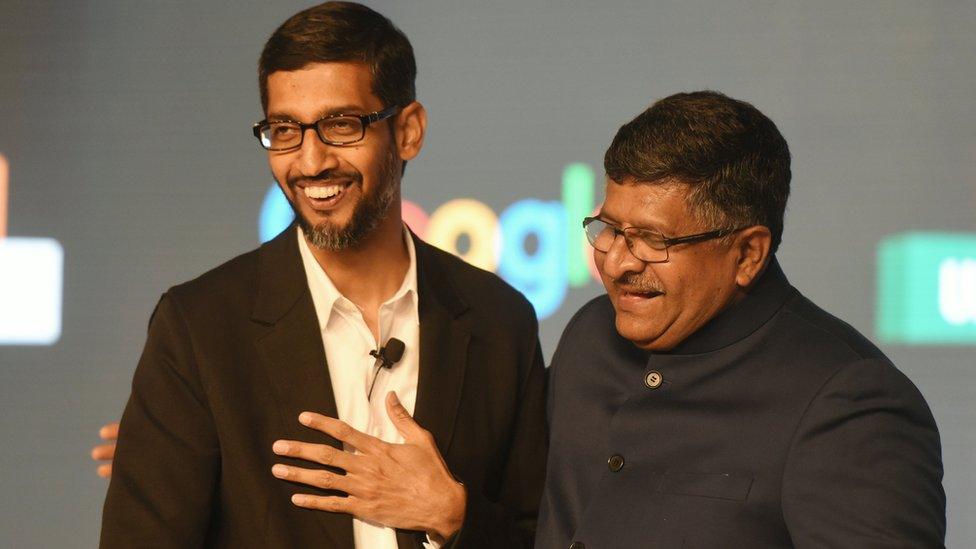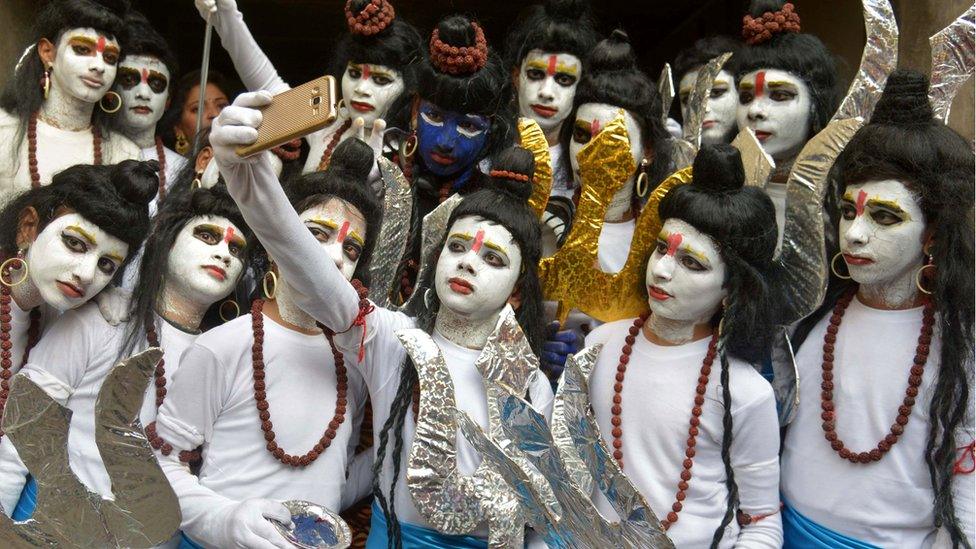H-1B: Why a new US visa bill is causing panic in India
- Published

H-1B is a type of US visa that allows skilled foreigners - mostly technology workers - to work in the US
A new bill introduced in the US House of Representatives proposes to limit the entry of highly-skilled workers into the country to stop companies "replacing" American workers.
Indian media organisations have described the move as a big setback to the IT industry and the Indian government has conveyed its concerns to the US administration.
What is the H-1B visa?
H-1B is a type of US visa that allows skilled foreigners - mostly technology workers - to work in the US.
In addition to a "regular cap" of 65,000 H-1B visas a year, for which applicants need a bachelor's degree, an additional 20,000 visas are available for US master's degree holders.
This non-immigrant visa lets a firm employ foreigners for up to six years in positions for which they have been unable to find American employees.
The H-1B visa holders can apply for permanent residency in the US and buy property in the country.
In 2016, Richard Verma, then US ambassador to India, said an estimated 70% of these visas go to Indian citizens.
However, the demand for these visas is three times higher, and H-1B visas are allocated by a lottery system.
Why does the US want this new law?
Several bills and a draft executive order are attempting changes to - or curbs on - the H-1B programme.
The High-Skilled Integrity and Fairness Act of 2017, introduced last week in the House of Representatives by California lawmaker Zoe Lofgren, a Democrat, calls for replacing the lottery system with a preference for companies that can pay the highest salaries.
It suggests, external raising the effective minimum wage for an H-1B visa holder to over $130,000, more than double the current $60,000 level established in 1989, for a category of employers. Exemptions, though allowed, are rare.

India is an important market for US tech firms like Google
The bill says the visa programme "has allowed replacement of American workers by outsourcing companies with cheaper H-1B workers" and aims to end the "abuse" of the programme.
"My legislation refocuses the H-1B programme to its original intent - to seek out and find the best and brightest from around the world, and to supplement the US workforce with talented, highly paid, and highly skilled workers who help create jobs here in America, not replace them," Rep Lofgren said on her website, external.
Why does this worry India's IT industry?
The proposed new legislation mainly targets companies not based in the US that bring in foreign employees on the visa quota.
The doubling of the minimum wage applies to "visa dependent employers" or companies with more than 15% of US employees on H-1B visas.
It excludes American firms such as IBM, allowing them to bring in H-1B holders at the older minimum wage, because they would have less than 15% of US employees on H-1B visas.
This effectively targets Indian outsourcing firms and the National Association of Software and Services Companies (Nasscom) has described it as "discriminatory".
"The new bill does not treat all IT companies with H-1B visa holders equally," Shivendra Singh, vice-president and head of global trade development at Nasscom, told the BBC.
"If the objective is to protect American workers, then this bill will defeat that objective. Companies that are not dependant on H-1B visas will continue to bring in skilled workers on lower wages which will nullify the whole objective of saving US jobs."
Amar Ambani, the head of research of India Infoline, said the bill would be bad news for the Indian economy as it "comes at a time when India's IT sector is already facing challenges to improve their margins and profitability".
Who is affected?
With the new bill targeting "visa dependant employers", it is primarily Indian firms such as Tata Consultancy Services (TCS), Infosys and Wipro which will be affected.
On Tuesday, stocks of Indian software exporters plunged, external - TCS's shares fell 4.47%, Infosys's declined 2% and Wipro's 1.62%.
American firms employing Indians on H-1Bs are excluded from the "visa dependant employer" definition.

Any retaliatory Indian action could impact American firms given the size of India's computer and smartphone market
Other countries such as China and Singapore may also be affected, but to a much lesser degree, and they may have other alternatives.
Singapore, for instance, has the H-1B1, similar to an H-1B but especially for citizens of that country under a free trade agreement between the two nations.
How could India respond?
If the bill does become law, options before India could include retaliatory action, given that major portions of India's technology markets are dominated by American firms such as Google, Dell, Hewlett-Packard, Microsoft and Apple, as well as consulting and services firms such as IBM and Accenture.
Experts say India will probably wait and watch for now, as this is simply a bill at this stage and chances of it becoming law are low, though not zero.
There could be lobbying by Indian associations or the government to pitch for a "level playing field" so any new norms apply to all firms employing H-1B workers, and not just Indian firms.
Any retaliatory action could impact American firms given the size of India's computer and smartphone market - India has a billion mobile phones, of which more than 300 million are smartphones, projected to double to over 600 million by 2019.
Also, in recent months, India has made a major push towards internet connectivity and digital payments which would mean more opportunities for American and global firms.
India and US have a joint target of $500bn bilateral trade and experts say it may not be easy for the US to ignore India's concerns.